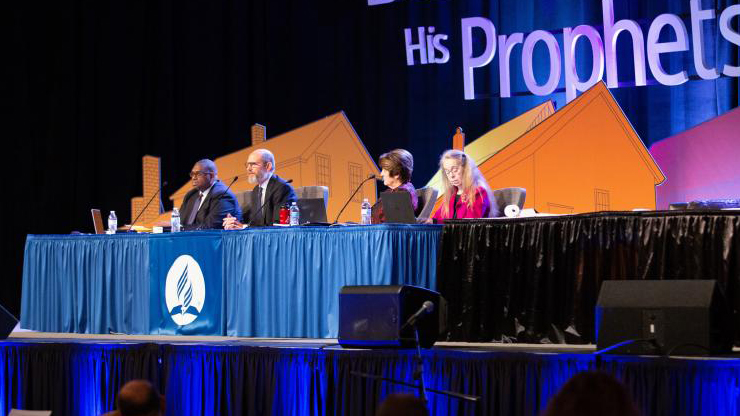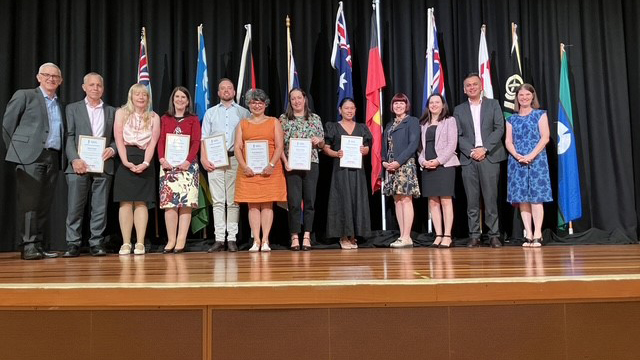While the majority of Annual Council delegates have voted in favour of adopting a new compliance process for the world Church, “the issue of compliance will not go away”, according to South Pacific Division (SPD) president Glenn Townend.
“The issue behind the consequences for non-compliance is still very current,” he said. “Women’s ordination is a conscience issue and no-one can shut down a person’s conscience.”
Yesterday, following more than five hours of presentations and discussion, delegates to the Church’s annual meeting of its full Executive Committee voted 185 to 124, with two abstaining, in favour of the steps recommended by the Church’s Unity Oversight Committee for addressing matters of non-compliance within the Seventh-day Adventist Church.
The steps are outlined in a document entitled Regard for and Practice of General Conference Session and General Conference Executive Committee Actions (see full document) and include a range of measures for dealing with non-compliant leaders, beginning with prayer and dialogue, followed by official warnings, public reprimand and eventually removal.
World Church president Dr Ted Wilson, who chaired the session, asked for all to participate with a “sweet spirit and a Christ-like demeanour”.
“We want a very open kind of setting,” he said. “We want to move ahead with an open and gracious spirit. We are here to do the will of the Lord.”

Pastor Townend said the meeting was conducted in a “very fair manner”.
“My read of the meeting was that most people wanted compliance and consequences to [deal with] non-compliance,” he said. “My concern was the way in which non-compliance was to be dealt with.
“We as a Church have moved away from the voted representative body, the Executive Committee, dealing with non-compliant issues to delegate this to ADCOM (General Conference Administrative Committee), which do not have executive power and are not a voted representative body.
“From my perspective this is a significant shift in how we do Church business.”
During the course of the discussion 71 delegates and invitees voiced their opinion about the proposed document, although none of the SPD delegates chose to do so. Pastor Townend said he decided not to speak up “because the points I was going to make had already been made by many others”.
“I have learned that you don’t win votes by the number of words,” he said. “I can also assure you though that the SPD members of the GC Executive Committee were united in their concerns on the document—we met together at the request of the GC president and shared openly the night before the discussion.”
New Zealand Pacific Union Conference (NZPUC) president Pastor Eddie Tupa’i, in a post to the NZPUC Facebook page said: “God speaks to you through His Spirit, His Word, wise people and circumstances. If you or I do something wrong—which is highly probable—I would like us to prayerfully work it out together and seek counsel from the wider Church to help us move forward. This is why I voted against the proposal.
“However, because the proposal was accepted . . . I will work with our NZPUC team, our South Pacific Division team and the GC team to see how we can all keep serving well together.
“It is important that we keep our focus on making disciples, placing the gospel in every home and making every church a centre of influence for God and for good. I love God’s Church and I won’t give up on her.”
Pastor Townend echoed his sentiments: “In the SPD we have people with many different opinions and can and will continue to share openly.
“We will also continue to support women in ministry, work with those entities who are non-compliant and above all focus on God’s mission to take His last day message of good news to the world.”
For more information about the session go to news.adventist.org. To read a Q&A about the document from the General Conference, click here.






